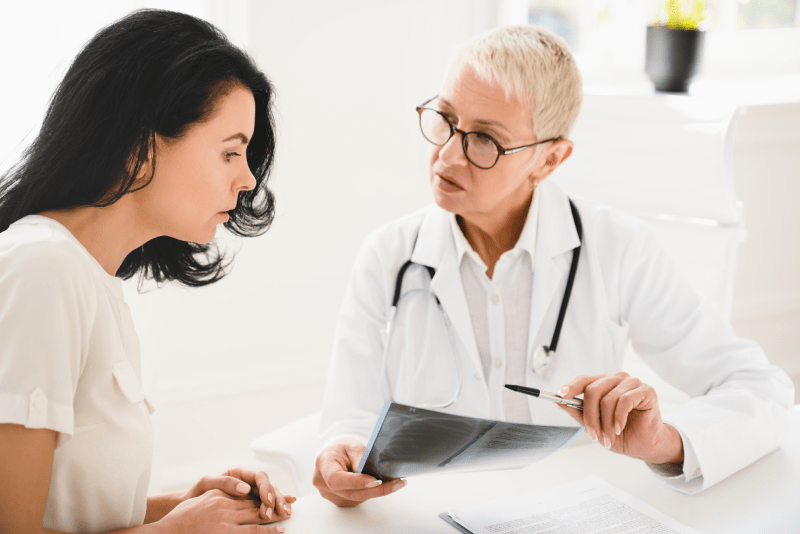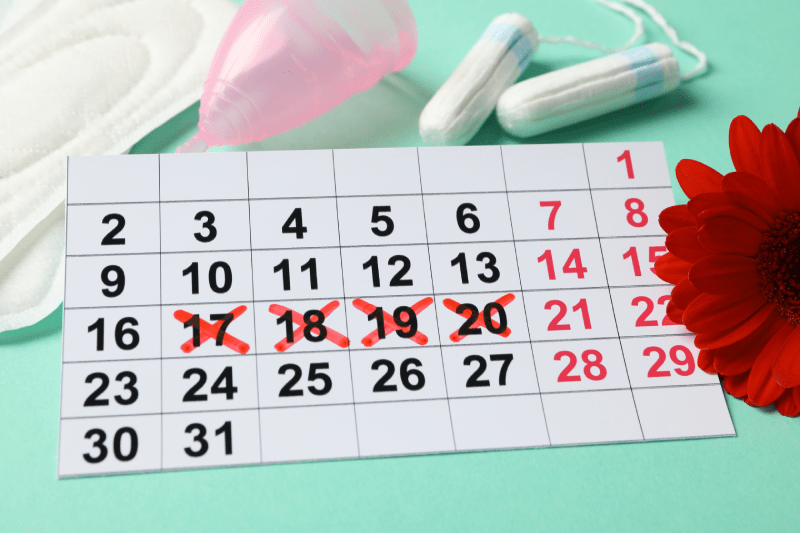IVF Treatment in Early Menopause
What is Early Menopause and Ovarian Insufficiency?
Early menopause and ovarian insufficiency are medical terms used to describe when a woman’s body stops producing regular amounts of the female hormone estrogen, before she is 45 years old. This can cause a variety of symptoms such as, irregular or missed periods, infertility, hot flashes, and other symptoms similar to menopause. Early menopause and ovarian insufficiency can be caused by various medical conditions, surgeries, or medical treatments, such as chemotherapy or radiation therapy. Treatment for these conditions can include hormone replacement therapy and lifestyle changes.
What Causes Early Menopause?
Early menopause, also known as premature ovarian failure, is the end of a woman’s menstrual cycle before turning 45 years old. It may be caused by various medical conditions and treatments, such as autoimmune disorders, ovarian surgery, chemotherapy or radiation, hormone imbalances, stress, smoking, unhealthy diet, alcoholism, and obesity. It is important to maintain a healthy lifestyle, reduce stress levels, and maintain a balanced and nutritious diet to reduce the risk of early menopause.
Top 10 Factors Causing Early Menopause
Early menopause, also known as premature ovarian failure, refers to the end of a woman’s menstrual cycles before the age of 45. It can be caused by a variety of underlying medical conditions, treatments such as radiation or chemotherapy, and other lifestyle factors. Here are the top 10 causes of early menopause:
- Genetics: Certain genetic disorders may increase the risk of early menopause.
- Autoimmune disorders: Autoimmune disorders such as lupus can lead to early menopause.
- Ovarian surgery: Surgery to remove the ovaries or surrounding tissue can trigger early menopause.
- Chemotherapy or radiation: Cancer treatments such as chemotherapy or radiation can stop the ovaries from functioning normally.
- Hormone imbalances: Conditions such as thyroid disease or PCOS can interfere with the body’s hormones and cause premature menopause.
- Stress: Stress has been linked to early menopause, possibly due to the hormones released in response to prolonged stress.
- Smoking: Smoking is linked to an increased risk of early menopause.
- Diet: Unhealthy eating habits, such as a poor diet that is low in nutrients, may be associated with early menopause.
- Alcohol: Excessive drinking can damage the ovaries and lead to early menopause.
- Obesity: Obese women are more likely to experience early menopause than their normal weight counterparts.
What are the Symptoms of Early Menopause?
Early menopause, also known as premature ovarian failure, is marked by the end of a woman’s menstrual cycle before age 45. Symptoms can often mimic regular menopause and can include irregular or missed periods, infertility, hot flashes, and other menopause-like symptoms. In addition, some women may experience other physical symptoms including insomnia, weight gain, vaginal dryness, depression, mood swings, and fatigue. It is important to speak with a medical professional if you are experiencing any of these symptoms to determine the cause.

What Are The Effects Of Lifestyle On Early Menopause?
The effects of lifestyle on early menopause are vast, as lifestyle choices can greatly impact a woman’s health and reproductive cycling. Poor diet and lack of exercise as well as excessive stress can increase the chances of earlier menopause. In addition, smoking cigarettes, drinking alcohol, and using drugs can all contribute towards premature ovarian failure. Early menopause carries many of the same side effects that menopause does, so it is essential for women to maintain a healthy lifestyle, reduce stress levels, and make sure to maintain a balanced and nutritious diet in order to reduce the effect of lifestyle on early menopause.
Is Early Menopause Genetic?
Yes, early menopause can be caused by genetic disorders, with research suggesting that certain genetic mutations can increase a woman’s risk of premature ovarian failure. However, in addition to genetics, early menopause can be caused by various medical conditions, treatments such as radiation or chemotherapy, and other lifestyle factors.
Can Early Menopause Be Prevented?
Unfortunately, there is no way to prevent early menopause, as the condition can be caused by genetic disorders, medical conditions, treatments, and lifestyle factors. However, there are ways to reduce the risk of experiencing early menopause. It is important to maintain a healthy lifestyle, reduce stress levels, and maintain a balanced and nutritious diet. Additionally, avoiding smoking, drinking excessively, and using drugs may help reduce the risk of early menopause.
How to Treat Early Menopause?
Early menopause, also known as premature ovarian failure, is marked by a woman’s body stopping regular production of the female hormone estrogen before age 45. Treatment for this condition can include hormone replacement therapy, lifestyle changes, and other medications. It is important to talk to a medical professional to best determine a course of treatment for early menopause.
Can I Get Pregnant in Early Menopause?
It is possible to get pregnant in early menopause, though it is more difficult for women in this condition due to the decreased production of hormones. It is important to speak to a medical professional if a woman is experiencing early menopause, as the cause needs to be determined and medications can help to regulate hormones to increase the chances of conception. In vitro fertilization (IVF) is the best treatment for people who want to get pregnant during early menopause. However, for the best fertility treatment, you should definitely get a consultation from the doctor. If you want to have a baby during menopause, remember that we can help you.

IVF Treatment in Early Menopause
The most successful way to have a baby in early menopause is IVF treatment. In IVF treatment, egg follow-up is important because ovulation decreases in early menopause. When egg development is guaranteed with injections to obtain healthy eggs, natural treatments are preferred because egg quality may decrease. After the egg develops successfully, an injection is applied to crack the egg and the egg becomes ready for fertilisation. Approximately 36 hours later, the egg is collected and sperm samples are taken from the man at the same time. The development of technology and medicine makes it possible to select healthy and high quality sperm. Thus, the success rate of IVF treatment in early menopause increases.
IVF treatment for early menopause is applied in well-equipped IVF centres in Cyprus. If you want to have a child during early menopause, you can get information about the treatment process to be performed by specialist doctors with Cyprus IVF treatment.


